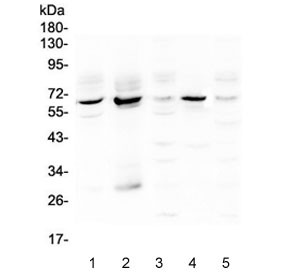Cookie-Einstellungen
Diese Website benutzt Cookies, die für den technischen Betrieb der Website erforderlich sind und stets gesetzt werden. Andere Cookies, die den Komfort bei Benutzung dieser Website erhöhen, der Direktwerbung dienen oder die Interaktion mit anderen Websites und sozialen Netzwerken vereinfachen sollen, werden nur mit Ihrer Zustimmung gesetzt.
Konfiguration
Technisch erforderlich
Diese Cookies sind für die Grundfunktionen des Shops notwendig.
"Alle Cookies ablehnen" Cookie
"Alle Cookies annehmen" Cookie
Ausgewählter Shop
CSRF-Token
Cookie-Einstellungen
FACT-Finder Tracking
Individuelle Preise
Kundenspezifisches Caching
Session
Währungswechsel
Komfortfunktionen
Diese Cookies werden genutzt um das Einkaufserlebnis noch ansprechender zu gestalten, beispielsweise für die Wiedererkennung des Besuchers.
Facebook-Seite in der rechten Blog - Sidebar anzeigen
Merkzettel
Statistik & Tracking
Endgeräteerkennung
Kauf- und Surfverhalten mit Google Tag Manager
Partnerprogramm

| Artikelnummer | Größe | Datenblatt | Manual | SDB | Lieferzeit | Menge | Preis |
|---|---|---|---|---|---|---|---|
| NSJ-RQ4669 | 100 µg | - | - |
3 - 10 Werktage* |
755,00 €
|
Bei Fragen nutzen Sie gerne unser Kontaktformular.
Bestellen Sie auch per E-Mail: info@biomol.com
Größere Menge gewünscht? Bulk-Anfrage
Bestellen Sie auch per E-Mail: info@biomol.com
Größere Menge gewünscht? Bulk-Anfrage
0.5mg/ml if reconstituted with 0.2ml sterile DI water. N6-adenosine-methyltransferase 70 kDa... mehr
Produktinformationen "Anti-METTL3 / M6A"
0.5mg/ml if reconstituted with 0.2ml sterile DI water. N6-adenosine-methyltransferase 70 kDa subunit (METTL3) is an enzyme that in humans is encoded by the METTL3 gene. It is mapped to 14q11.2. This gene encodes the 70 kDa subunit of MT-A which is part of N6-adenosine-methyltransferase. This enzyme is involved in the posttranscriptional methylation of internal adenosine residues in eukaryotic mRNAs, forming N6-methyladenosine. Protein function: The METTL3-METTL14 heterodimer forms a N6-methyltransferase complex that methylates adenosine residues at the N(6) position of some RNAs and regulates various processes such as the circadian clock, differentiation of embryonic and hematopoietic stem cells, cortical neurogenesis, response to DNA damage, differentiation of T-cells and primary miRNA processing (PubMed:22575960, PubMed:24284625, PubMed:25719671, PubMed:25799998, PubMed:26321680, PubMed:26593424, PubMed:27627798, PubMed:27373337, PubMed:27281194, PubMed:28297716, PubMed:30428350, PubMed:29506078, PubMed:29348140, PubMed:9409616). In the heterodimer formed with METTL14, METTL3 constitutes the catalytic core (PubMed:27627798, PubMed:27373337, PubMed:27281194). N6- methyladenosine (m6A), which takes place at the 5'-[AG]GAC-3' consensus sites of some mRNAs, plays a role in mRNA stability, processing, translation efficiency and editing (PubMed:22575960, PubMed:24284625, PubMed:25719671, PubMed:25799998, PubMed:26321680, PubMed:26593424, PubMed:28297716, PubMed:9409616). M6A acts as a key regulator of mRNA stability: methylation is completed upon the release of mRNA into the nucleoplasm and promotes mRNA destabilization and degradation (PubMed:28637692). In embryonic stem cells (ESCs), m6A methylation of mRNAs encoding key naive pluripotency-promoting transcripts results in transcript destabilization, promoting differentiation of ESCs. M6A regulates the length of the circadian clock: acts as an early pace-setter in the circadian loop by putting mRNA production on a fast-track for facilitating nuclear processing, thereby providing an early point of control in setting the dynamics of the feedback loop. M6A also regulates circadian regulation of hepatic lipid metabolism (PubMed:30428350). M6A regulates spermatogonial differentiation and meiosis and is essential for male fertility and spermatogenesis. Also required for oogenesis. Involved in the response to DNA damage: in response to ultraviolet irradiation, METTL3 rapidly catalyzes the formation of m6A on poly(A) transcripts at DNA damage sites, leading to the recruitment of POLK to DNA damage sites (PubMed:28297716). M6A is also required for T-cell homeostasis and differentiation: m6A methylation of transcripts of SOCS family members (SOCS1, SOCS3 and CISH) in naive T-cells promotes mRNA destabilization and degradation, promoting T-cell differentiation. Inhibits the type I interferon response by mediating m6A methylation of IFNB (PubMed:30559377). M6A also takes place in other RNA molecules, such as primary miRNA (pri- miRNAs) (PubMed:25799998). Mediates m6A methylation of Xist RNA, thereby participating in random X inactivation: m6A methylation of Xist leads to target YTHDC1 reader on Xist and promote transcription repression activity of Xist (PubMed:27602518). M6A also regulates cortical neurogenesis: m6A methylation of transcripts related to transcription factors, neural stem cells, the cell cycle and neuronal differentiation during brain development promotes their destabilization and decay, promoting differentiation of radial glial cells. METTL3 mediates methylation of pri-miRNAs, marking them for recognition and processing by DGCR8 (PubMed:25799998). Acts as a positive regulator of mRNA translation independently of the methyltransferase activity: promotes translation by interacting with the translation initiation machinery in the cytoplasm (PubMed:27117702). Its overexpression in a number of cancer cells suggests that it may participate in cancer cell proliferation by promoting mRNA translation (PubMed:27117702). During human coronorivus SARS-CoV-2 infection, adds m6A modifications in SARS-CoV-2 RNA leading to decreased DDX58/RIG-I binding and subsequently dampening the sensing and activation of innate immune responses (PubMed:33961823). [The UniProt Consortium]
| Schlagworte: | Anti-MTA70, Anti-MT-A70, Anti-hMETTL3, Anti-Methyltransferase-like protein 3, Anti-N6-adenosine-methyltransferase 70 kDa subunit, Anti-N6-adenosine-methyltransferase catalytic subunit, METTL3 Antibody / M6A |
| Hersteller: | NSJ Bioreagents |
| Hersteller-Nr: | RQ4669 |
Eigenschaften
| Anwendung: | WB, FC, Direct ELISA |
| Antikörper-Typ: | Polyclonal |
| Konjugat: | No |
| Wirt: | Rabbit |
| Spezies-Reaktivität: | human, mouse, rat |
| Immunogen: | Amino acids Q423-D571 from the human protein |
| Format: | Purified |
Datenbank Information
| KEGG ID : | K05925 | Passende Produkte |
| UniProt ID : | Q86U44 | Passende Produkte |
| Gene ID | GeneID 56339 | Passende Produkte |
Handhabung & Sicherheit
| Lagerung: | +4°C |
| Versand: | +4°C (International: +4°C) |
Achtung
Nur für Forschungszwecke und Laboruntersuchungen: Nicht für die Anwendung im oder am Menschen!
Nur für Forschungszwecke und Laboruntersuchungen: Nicht für die Anwendung im oder am Menschen!
Hier folgen Informationen zur Produktreferenz.
mehr
Hier kriegen Sie ein Zertifikat
Loggen Sie sich ein oder registrieren Sie sich, um Analysenzertifikate anzufordern.
Bewertungen lesen, schreiben und diskutieren... mehr
Kundenbewertungen für "Anti-METTL3 / M6A"
Bewertung schreiben
Loggen Sie sich ein oder registrieren Sie sich, um eine Produktbewertung abzugeben.
Zuletzt angesehen







